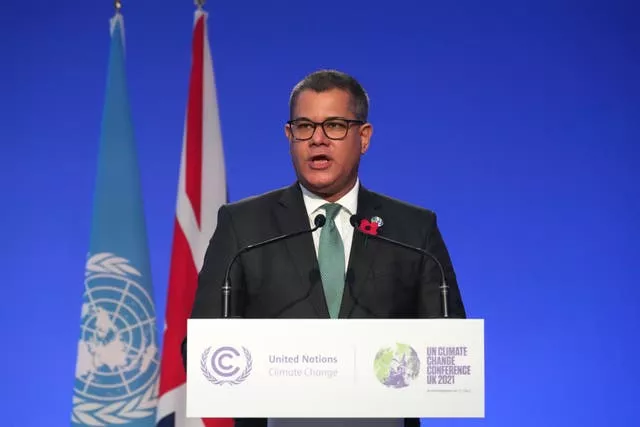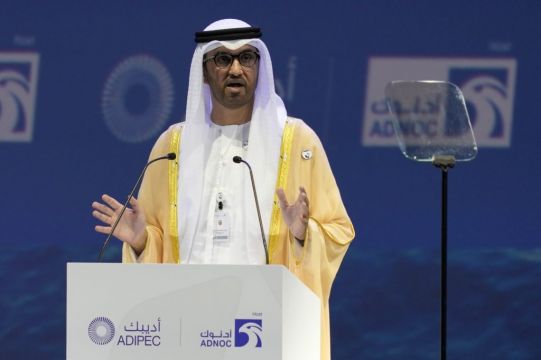The United Arab Emirates has named a veteran technocrat with experience in both renewable energies and the oil business to be the president of the upcoming United Nations climate negotiations in Dubai.
Sultan al-Jaber is a trusted confidant of UAE leader Sheikh Mohammed bin Zayed Al Nahyan, who serves as chief executive of the state-run Abu Dhabi National Oil Co, which pumps four million barrels of crude a day and hopes to expand to five million.
Those revenues fuel the ambitions of this federation of seven sheikhdoms on the Arabian Peninsula, as well as the production of more of the heat-trapping carbon dioxide that the UN negotiations hope to limit.
But Mr al-Jaber also has experience in renewables. He led a once-ambitious project to have a 22 billion dollar (£18 billion) carless, carbon-neutral city on Abu Dhabi’s outskirts that later scaled back its ambitions after the global financial crisis that struck the Emirates hard, beginning in 2008.
Even today, he serves as the chairman of Masdar, a clean energy company that grew out of the project that now operates in more than 40 countries.
“Sultan al-Jaber has the credentials and background to lean into trends that are already on going,” said Ryan Bohl, a Texas-based analyst for a risk-intelligence firm called the RANE Network. “Him being an oil man, I don’t think that will be that big of a risk for him.”
The Emirates’ state-run WAM news agency made the announcement, and quoted al-Jaber as saying: “This will be a critical year in a critical decade for climate action. The UAE is approaching Cop28 next winter with a strong sense of responsibility and the highest possible level of ambition.
“We will bring a pragmatic, realistic and solutions-oriented approach that delivers transformative progress for climate and for low-carbon economic growth.”
Harjeet Singh, head of global political strategy at Climate Action Network International, said the nomination of an oil company executive posed “an unprecedented and alarming conflict of interest”.
“There can be no place for polluters at a climate conference, least of all presiding over a Cop,” he added.
Each year, the country hosting the UN negotiations known as the Conference of the Parties nominates a person to chair the talks – typically a veteran diplomat as the talks can be difficult to steer between competing nations and their interests.
The nominee’s position as Cop president is confirmed by delegates at the start of the talks, usually without objections.
The calibre of presidents has varied over the years. Observers widely saw Britain’s Alok Sharma as energetic and committed to achieving an ambitious result, but Egypt’s foreign minister Sameh Shoukry was criticised by some participants for the chaotic and at times non-transparent way he presided over last year’s meeting.

Mr al-Jaber’s planned role as president would see him firmly in the world’s spotlight for the first time. He is not a member of Abu Dhabi’s ruling Al Nahyan family, but has become crucial in running the Emirates’ energy policies.
In its announcement, WAM said the Emirates had invested “more than 50 billion dollars (£41 billion) in renewable energy projects across 70 countries, with plans to invest a minimum of 50 billion more over the next decade”.
Mubadala, Abu Dhabi’s sovereign wealth fund, has invested 3.9 billion dollars (£3.2 billion) in renewable energy since 2018, according to New York-based research firm Global SWF. Masdar listed 14.3 billion dollars (£11.7 billion) in investments in a 2020 briefing.
But at the same time, Mubadala has invested 9.8 billion dollars (£8 billion) over the same period in oil and gas projects, Global SWF said.
Cop28 will be held at Dubai’s Expo City from November 30 to December 12.







